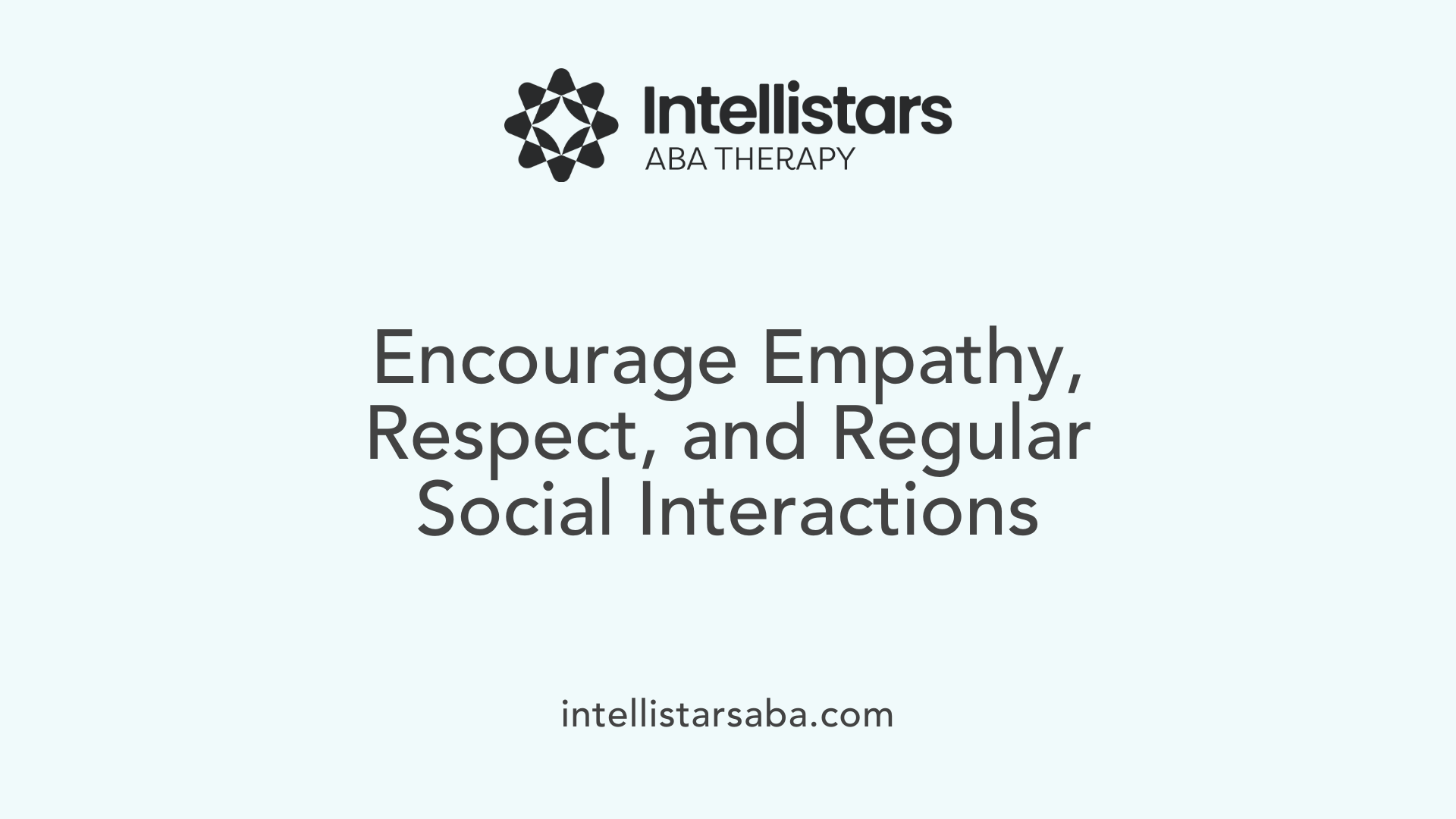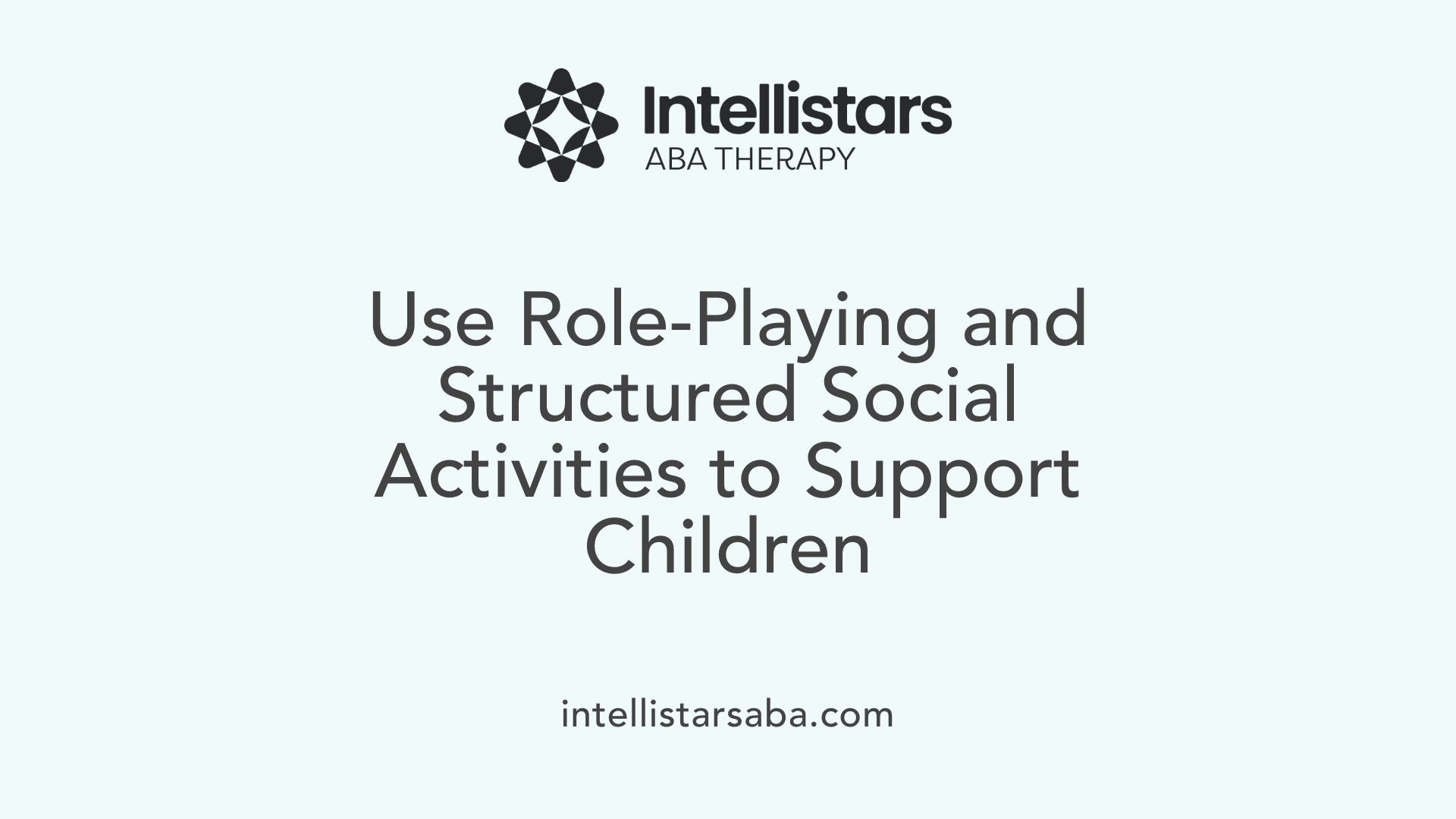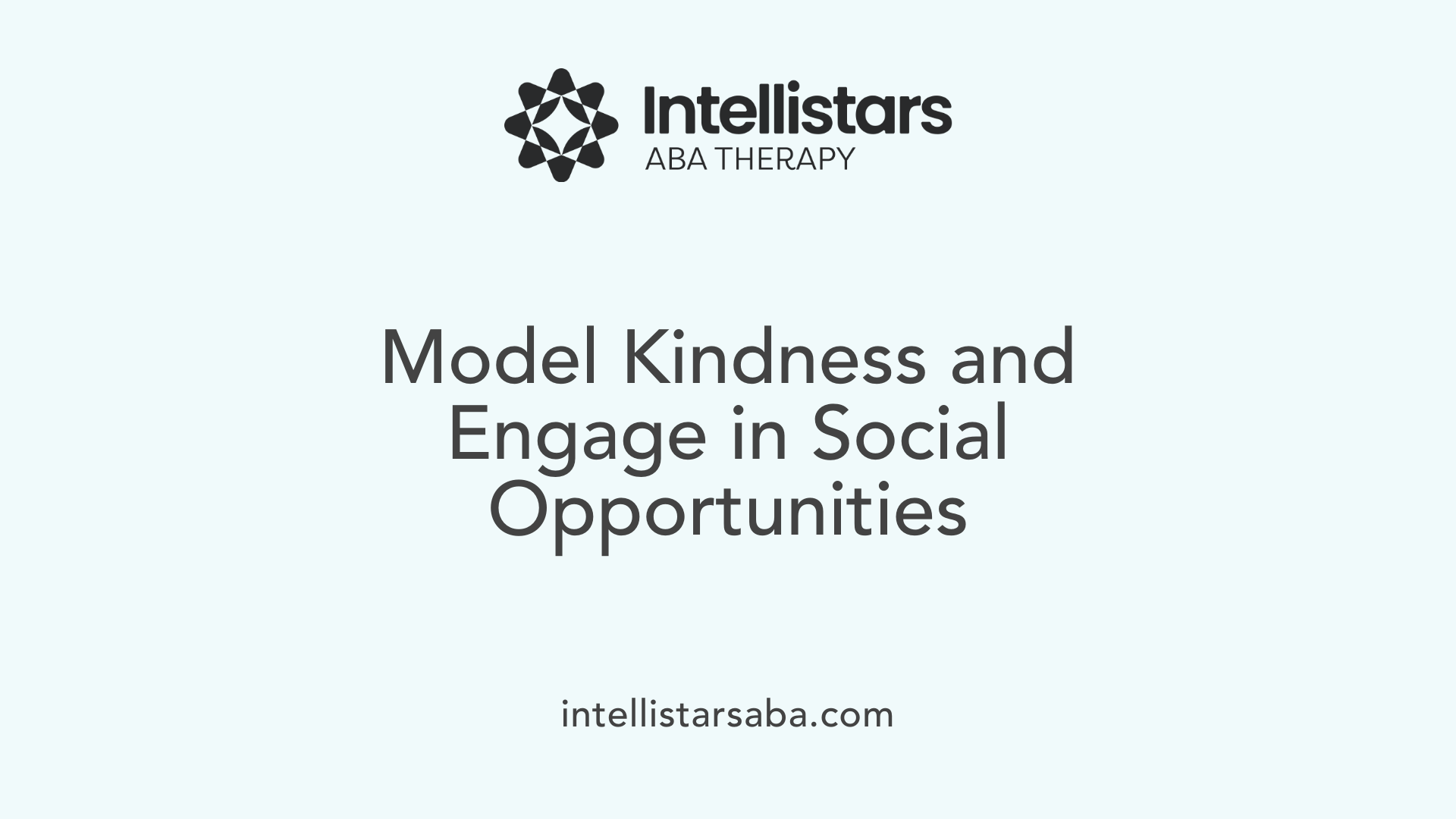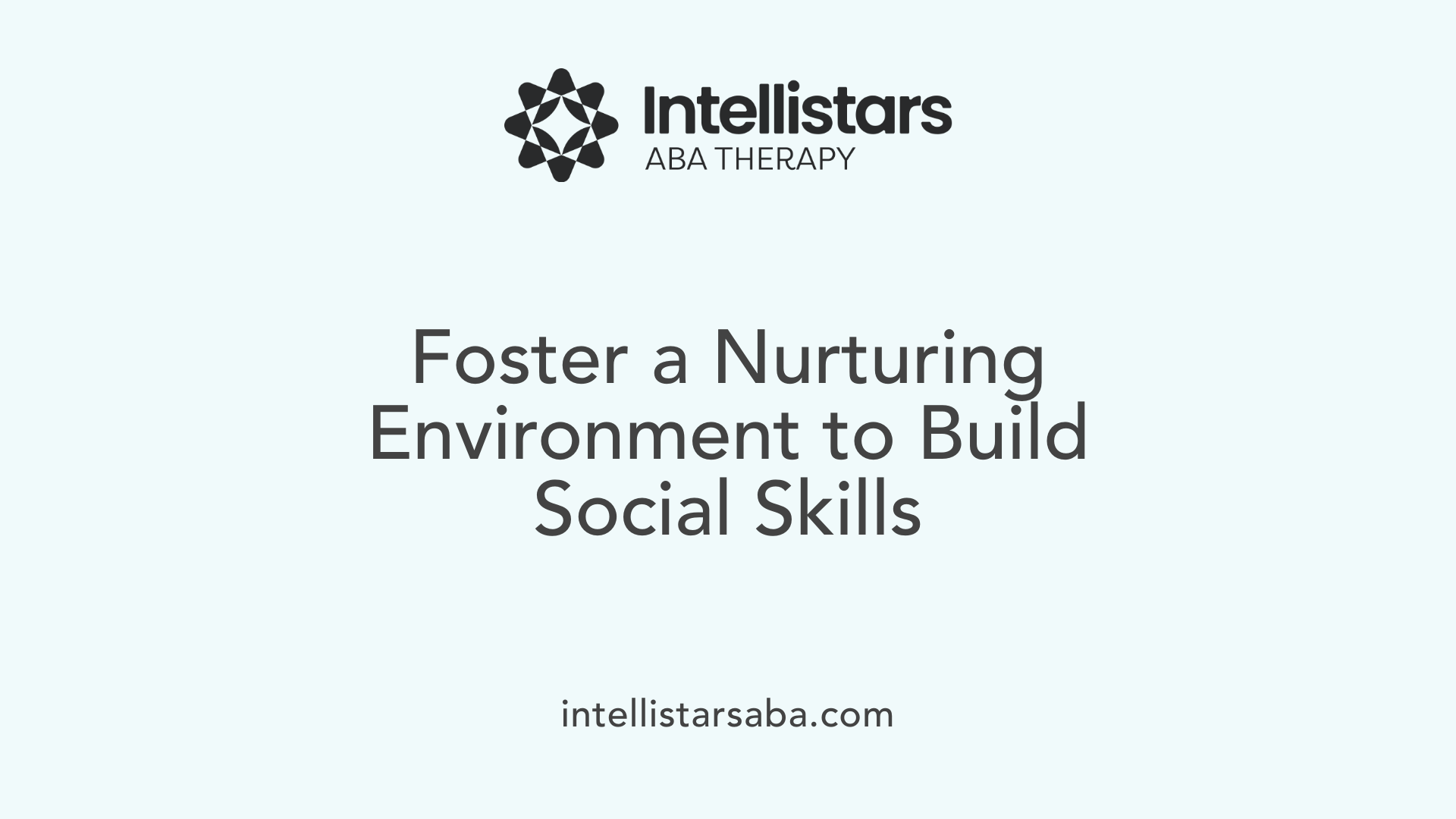Supporting Your Child’s Social Growth from the Ground Up
Helping children develop strong social skills is essential for their emotional health, self-esteem, and lifelong relationships. This guide provides practical strategies rooted in research and expert advice to assist parents in nurturing their child's ability to make and sustain meaningful friendships.
Creating a Foundation for Social Success

What are effective ways for parents to support their child's social skill development?
Supporting a child's social growth involves multiple strategies rooted in emotional skills, self-regulation, and social competence. Parents play a crucial role in establishing a nurturing environment that encourages positive social interactions.
One of the fundamental approaches is creating a safe and predictable space where children feel secure enough to express their emotions and try new social behaviors. This environment helps children develop confidence and emotional resilience.
Engagement in various social activities is vital. Activities such as playdates, group games, and cooperative chores provide children with opportunities to practice essential skills like sharing, taking turns, and resolving conflicts. Participating in these interactions helps children learn how to navigate social situations effectively.
Modeling positive behaviors is another powerful tool. When parents demonstrate empathy, patience, active listening, and respectful communication, children observe and imitate these behaviors. Such modeling teaches children how to respond to others appropriately and build healthy relationships.
In addition to modeling, discussing feelings with children enhances their emotional awareness and empathy. Parents can talk about emotions, use media resources like children’s books or shows that depict social scenarios, and engage in role-playing exercises. These activities develop their understanding of social cues, emotional regulation, and perspective-taking.
Praise and encouragement play a significant role in reinforcing social efforts. Recognizing children’s efforts, rather than just outcomes, fosters resilience and motivation. Encouraging independence in social settings helps children gain confidence in managing their interactions.
Tailoring social opportunities to each child's needs ensures that experiences are neither overwhelming nor under-challenging. Whether it's arranging playdates at home, at a community center, or in school activities, these experiences build social competence gradually and sustainably.
By combining these strategies—modeling, practicing, discussing, and supporting—parents can effectively nurture their child's social skills, laying a strong foundation for lifelong social-emotional success.
Modeling Positive Behaviors and Providing Opportunities
How does parental warmth and respect influence a child's social skills?
Parental warmth and respect play a crucial role in shaping a child's social abilities. When parents show kindness, understanding, and regard for their children, they foster an environment that promotes prosocial behaviors such as kindness, sharing, and caring for others. These positive interactions encourage children to develop better peer relationships and become likable, cooperative individuals.
Why is modeling social skills important for children?
Children learn a great deal by observing their parents. Demonstrating good social behaviors—like empathy, active listening, and respectful communication—serves as a powerful example. When parents engage in positive interactions outside the home, such as polite conversations or conflict resolution, children absorb these cues and mimic them in their own social encounters.
How can organized activities support social development?
Structured activities like sports, clubs, or group projects provide children with safe spaces to practice social skills. These environments foster cooperation, teamwork, and friendship-building. Organizing playdates or group outings around common interests makes it easier for children to initiate conversations and form meaningful connections.
Guidance for parents to foster healthy social interactions in children
Parents can actively guide their children by modeling respectful, empathetic behaviors and encouraging social practice through various settings. Giving praise for small successes builds confidence, while setting up opportunities such as supervised playdates helps children hone their skills. Using social stories or role-playing exercises with children can prepare them for real-life interactions.
Parents should pay attention to children's social behaviors in different contexts to identify needs and gently support growth. In cases where children face pronounced difficulties, consulting professionals—such as developmental specialists or therapists—can provide tailored strategies. Ultimately, creating a nurturing environment, combined with active modeling and organized social activities, helps children develop the skills necessary for healthy social relationships.
| Aspect | Focus | Additional Details |
|---|---|---|
| Parental warmth | Emotional foundation | Builds trust and confidence |
| Modeling behaviors | Setting an example | Demonstrates empathy, communication |
| Organized activities | Practical skill development | Sports, clubs, playdates |
| Social guidance | Active coaching | Praising successes, supporting challenges |
Encouraging Emotional Literacy and Empathy

How can parents help children make friends and build relationships?
Parents play a vital role in teaching children how to develop meaningful friendships. They can start by modeling positive behaviors such as kindness, respect, and good communication. This demonstrates how to interact thoughtfully with others and sets a blueprint for children to emulate.
Creating opportunities for social interaction is another important aspect. Parents can organize playdates, encourage participation in sports, clubs, or community activities aligned with the child's interests. These settings allow children to practice social skills like sharing, taking turns, and listening.
Teaching children specific social skills, such as initiating conversations, giving genuine compliments, and using active listening, helps them feel more confident in social settings. Role-playing social scenarios at home can further reinforce these skills, making children more comfortable when engaging with peers.
A supportive environment is essential, especially for shy or socially anxious children. Sensitive, responsive parenting can promote secure attachments and boost self-confidence.
Parents should also observe their child's social interactions, noting any difficulties or differences across settings. Providing gentle guidance when needed and promoting understanding and forgiveness encourage healthier relationships.
Ultimately, nurturing emotional regulation and empathy helps children connect more deeply with others, fostering strong, positive friendships that support their emotional and social growth.
Addressing Behavioral and Emotional Challenges

What practical tips can support children who have difficulty making friends?
Supporting children who struggle to develop friendships involves various practical strategies that build their social skills and emotional resilience.
One effective approach is coaching children through role-playing different social scenarios. For example, practicing how to introduce themselves, ask open-ended questions, or say thank you can make these interactions less intimidating. Parents and caregivers can also model good social behaviors by engaging in friendly conversations with others, showing children how to connect comfortably.
Creating safe and structured opportunities for socialization can help children gain confidence. Organizing supervised playdates, especially during early childhood, allows kids to practice social skills in a supportive environment. Engaging children in shared-interest activities like sports, clubs, or artistic groups encourages them to bond over common passions.
Fostering emotional regulation and empathy is crucial. Children who can manage their impulses and understand others’ feelings tend to be better at forming friendships. Parents can guide children in recognizing their emotions and coping constructively, which reduces aggressive or disruptive behaviors.
Consistent discussion about social experiences and offering positive feedback can reinforce successful interactions and help children learn from each experience. For example, praising a child's good turn during a game or their effort to share toys encourages continued social engagement.
Patience is essential. Building social competence takes time, and children need ongoing support and encouragement. If persistent difficulties occur, consulting professionals, such as child psychologists or behavioral therapists, can provide tailored guidance that considers the child's unique needs.
In summary, combining skill practice, emotional support, and safe social environments helps children develop friendships more easily. With patience and professional help when needed, children can overcome barriers and build meaningful peer relationships.
Promoting Social Inclusion and Friendship Formation
How can parents promote meaningful friendships and social inclusion among children?
Parents play a crucial role in fostering social skills and inclusion from a young age. One effective way to promote meaningful friendships is by encouraging empathy and acceptance. This can be achieved through activities like role-playing, storytelling, and cooperative play, which help children understand different perspectives and develop communication skills.
Organizing inclusive activities is another powerful strategy. By facilitating interactions with peers from diverse backgrounds, abilities, and interests, parents help children build strong social networks. These experiences not only broaden their understanding of diversity but also promote compassion and acceptance.
Supporting social skills development is essential. Programs such as peer mentoring and friendship groups, especially for children with disabilities or social challenges, can foster lasting relationships. These initiatives provide safe environments where children learn collaboration, support, and community engagement.
Creating inclusive environments with adapted communication tools and educating children about diversity and acceptance can greatly enhance social cohesion. Celebrating differences and encouraging children to embrace diversity nurtures an inclusive mindset.
Ultimately, fostering empathy, providing diverse opportunities for social interaction, and supporting inclusive behaviors help lay a foundation for children to form meaningful and enduring friendships. These efforts not only benefit individual social development but also contribute to a more accepting and cohesive community.
Nurturing Long-term Relationship Skills

What are best practices for nurturing a child's ability to develop and maintain relationships?
Fostering lasting friendships and healthy relationships starts with providing a nurturing environment that offers love, warmth, and consistency. Responsive parenting—where caregivers attentively respond to children’s emotional needs—helps establish a sense of security and trust, which are the foundation for social development.
Encouraging children to engage in unstructured play and shared activities allows them to practice communication, cooperation, and empathy. These experiences teach children how to navigate social situations, understand others' feelings, and resolve conflicts.
Modeling good social behavior at home and outside, such as demonstrating kindness, effective communication, and calm conflict resolution, provides children with concrete examples to emulate. Talking openly about emotions and encouraging children to express theirs helps develop emotional intelligence, a critical skill for forming meaningful relationships.
Creating regular opportunities for social interaction is vital. Organizing playdates, participating in extracurricular activities like sports or clubs, and involving children in family outings help them practice building connections. Supervising these interactions without excessive control allows children to learn important social lessons while feeling supported.
Teaching children respect, empathy, and the importance of listening fosters understanding and compassion—traits that sustain long-term relationships. Supporting children in managing their feelings and understanding social cues enhances their ability to connect with others over time.
In summary, nurturing ability in children to develop and maintain relationships involves a combination of responsive care, modeling positive behaviors, providing social opportunities, and teaching emotional and social skills. These practices help children build confidence and resilience, ensuring they are better equipped for lifelong social success.
| Practice Area | Activities & Strategies | Additional Notes |
|---|---|---|
| Emotional Support | Responsive parenting, emotion coaching, open communication | Builds trust and emotional understanding |
| Social Opportunities | Playdates, sports, clubs, group activities, family outings | Provides real-world practice in social settings |
| Role Modeling | Demonstrating kindness, sharing, effective listening, respectful disagreement | Reinforces positive behavior |
| Skill Development | Teaching conversation skills, conflict resolution, apology, and forgiveness | Enhances communication and empathy |
| Learning Through Play | Structured and unstructured play, cooperative games, inclusive activities | Fosters cooperation, empathy, and conflict management |
| Parental Involvement | Monitoring relationships without over-controlling, engaging in social activities | Encourages independence and confidence |
By integrating these practices into daily life, parents can effectively support their child's journey toward establishing and maintaining meaningful social bonds, leading to enhanced self-esteem, happiness, and social competence.
Final Thoughts on Building a Socially Skilled Child

How can parents support their child's social development?
Parents play a vital role in helping children develop social skills by creating a nurturing environment that encourages positive interactions. Engaging children in activities such as cooperative games, sports, or group projects provides opportunities for practicing communication, cooperation, and empathy. Modeling respectful behavior, like polite conversation and active listening, teaches children good social habits.
Explicit instruction of social skills—such as starting conversations, making introductions, and managing conflicts—is also beneficial. Role-playing social scenarios at home or with professionals like therapists can boost confidence and ease anxiety, especially for children with social difficulties or on the autism spectrum.
Parents can promote inclusiveness by introducing children to diverse groups and teaching them to appreciate differences. Maintaining open communication about feelings, friendships, and social challenges helps children understand and navigate their social world with more confidence.
Why is parental involvement crucial?
Involvement from parents and caregivers is fundamental to a child's social success. Providing routines that support emotional health and offering consistent praise for social efforts builds resilience and self-esteem.
Supervised playdates and participation in community activities like clubs or sports enhance peer interactions. Monitoring social interactions without over-controlling ensures children feel supported yet independent. Sharing your own positive experiences and challenges in friendship can create a trusting environment where children feel comfortable sharing their social concerns.
What are the benefits of social skills learned early in life?
Developing social skills early helps children build meaningful friendships that boost their self-esteem and overall happiness. These skills translate into better communication, healthier relationships, and greater emotional regulation later in life.
Children who learn to understand and express emotions and resolve conflicts peacefully tend to grow into empathetic and inclusive adults. Such social competence also lowers risks of depression and anxiety and prepares children for success in school, work, and personal life.
| Aspect | Benefits | How Parents Can Help |
|---|---|---|
| Communication Skills | Better ability to express oneself clearly | Practice conversations, role-play, praise efforts |
| Empathy | Understand others' feelings | Discuss emotions, read stories about feelings |
| Cooperation | Ability to work well with others | Include children in group activities and chores |
| Emotional Regulation | Manage feelings effectively | Teach mindfulness, validate emotions, set routine |
| Conflict Resolution | Resolve disagreements peacefully | Teach negotiation skills, model calm behavior |
Supporting social development is an ongoing process that benefits children across all areas of life. By fostering these skills early, parents lay the groundwork for their child's future success, happiness, and inclusion in a diverse society.
Empowering Your Child for a Socially Connected Future
Building your child’s social skills is a comprehensive process that involves modeling positive behaviors, creating opportunities for practice, and fostering emotional understanding and empathy. By actively engaging in supportive activities, setting a safe environment for social exploration, and teaching key interpersonal skills, parents can help their children develop meaningful relationships that last a lifetime. Remember, every child is unique, and patience combined with positive reinforcement will guide them toward confident and healthy social interactions.
References
- Help kids make friends: 12 evidence-based tips
- Helping children make friends: What parents can do
- Kids Who Need a Little Help to Make Friends
- How to help kids make friends
- 6 Simple Ways To Help A Child That Struggles To Make ...
- Caring for Kids - Helping Your Child Build Meaningful ...
- Social Skills 101: How To Help Your Child Make Friends






